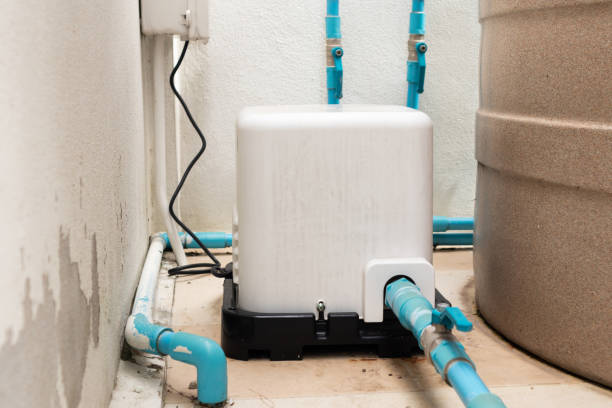Access to clean, fresh water is essential for every household. Whether you rely on municipal water or have a private well, impurities can sneak into your water supply, affecting its taste, smell, and safety. This is where a whole house water filter comes into play. In this guide, we’ll dive into actionable tips and advice to help you choose the best whole house water filter for your specific needs.
If you’re wondering where to begin—especially if you’re dealing with well water—read on for a friendly, relatable look at how to make your water as clean as it can be.
What is a Whole House Water Filter?
Imagine a filter that cleans all the water entering your home before it reaches your taps, showers, and appliances. That’s the magic of a whole house water filter. These systems are installed at your main water line and address contaminants such as sediment, chlorine, and heavy metals. For homes using well water, these filters are even more critical, as they can also tackle bacteria, nitrates, and other impurities unique to groundwater.
Why Choose a Whole House Water Filter for Well Water?
Well water can be unpredictable. One day it’s crystal clear, and the next, it’s carrying silt, iron, or even sulfur that gives it an unpleasant smell. A whole house filter for well water is designed to handle these challenges:
Tackles sediment and turbidity: Removes dirt and sand that can clog pipes and appliances.
Neutralizes odors: Filters out sulfur and other compounds causing that “rotten egg” smell.
Improves taste: Eliminates metallic or earthy flavors often found in well water.
Protects health: Filters out harmful bacteria and chemicals like pesticides or herbicides.
Tips for Choosing the Best Whole House Water Filter
The right filter depends on your unique water situation. Here’s what you need to know:
Test Your Water First
Before buying a filter, understand what’s in your water. If you’re on well water, a water testing kit can reveal levels of iron, manganese, bacteria, and more. For municipal water users, your local water quality report is a great starting point.
Consider Multi-Stage Systems
The best whole house water filters often have multiple stages to address different contaminants. Look for systems that:
- Have sediment pre-filters to catch large particles.
- Use activated carbon to reduce chlorine, pesticides, and bad odors.
- Include specialized filters for well water, like UV lights to kill bacteria or resin filters for iron removal.
Check the Flow Rate
Your water filter shouldn’t slow down your showers or washing machine. Match the flow rate of the filter (measured in gallons per minute or GPM) with your household’s water usage.
Look for Long-Lasting Filters
Nobody wants to change filters constantly. Choose systems with durable cartridges or filters designed to last 6-12 months, depending on your water quality and usage.
Don’t Forget the Budget
Whole house water filters range widely in price. Factor in not just the upfront cost but also maintenance, such as replacement filters. The right filter is an investment in your health and home.
Well Water-Specific Advice
If you’re filtering well water, you might need additional features:
Iron Filters: These are essential if your water has high iron content, which can stain laundry and fixtures.
UV Purifiers: Kill bacteria and viruses, a common concern for well water.
Water Softeners: If your well water is hard, combining a filter with a softener can reduce scale buildup on pipes and appliances.
Relatable Examples: Choosing What Works
Think about your neighbor down the road who uses well water. Their filter might focus on sediment and bacteria, while you might need something extra to handle iron. Or imagine your friend in the city—they’re dealing with chlorine and fluoride, so a simpler filter works for them.
Every household’s water is different, and that’s why testing is so important. It’s like shopping for shoes: one size doesn’t fit all, and neither does one water filter.
Where to Install a Whole House Water Filter
The filter should be installed near your main water line, just after the water meter (for municipal water) or the pressure tank (for well water). This ensures all the water entering your home is filtered. If you’re unsure, a plumber can guide you.
Maintaining Your Whole House Water Filter
Once you’ve chosen the best whole house water filter for your home, regular maintenance is key:
Replace cartridges as recommended by the manufacturer.
Clean sediment pre-filters monthly, especially if you use well water.
Check for leaks or drops in water pressure, which might indicate a clogged filter.
The Bottom Line
Finding the best whole house water filter doesn’t have to be overwhelming. Whether you rely on city water or well water, a filter tailored to your needs can make a world of difference. Cleaner water means healthier living, better-tasting meals, and longer-lasting appliances.
If you’re ready to enjoy pure, fresh water throughout your home, start by testing your water, exploring multi-stage filters, and considering options tailored for well water users. The effort will pay off every time you turn on the tap.
